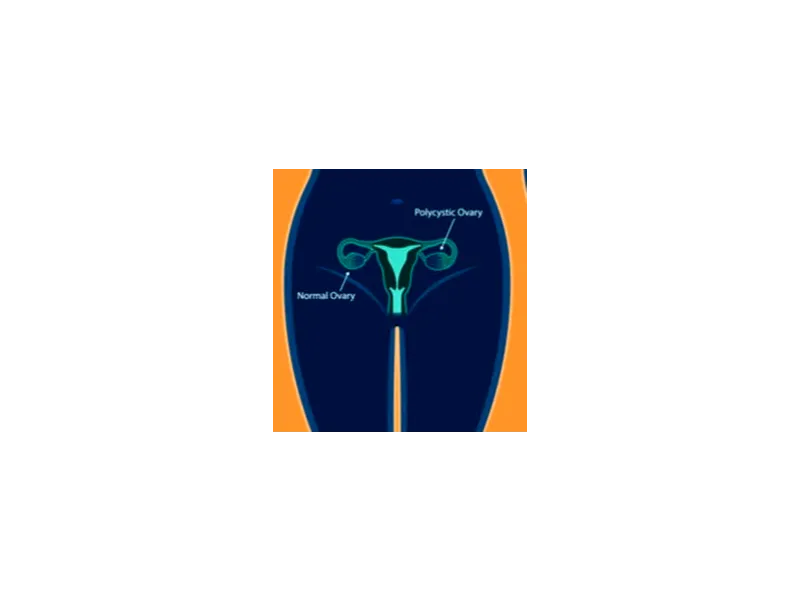Multivitamins for Diabetics
Best Multivitamins for Diabetics
There are many types of diabetes. Some people only experience mild symptoms while others may suffer from some serious complications. Regardless, there are ways to treat this problem. In fact, most diabetics will be prescribed certain medications as part of their treatment regime and diabetes management.
However, these drugs come with a number of side effects, including weight gain and reduced sex drive. Instead, you can try natural treatments to combat your condition. This is because they often contain ingredients that have been used for thousands of years to prevent or treat this illness.
In addition, multi-vitamin supplements can help you fight off diseases such as cancer. For example, vitamin C can boost the immune system and is essential to a healthy lifestyle. Vitamin E has also proven useful in treating conditions like Alzheimer’s and cardiovascular disorders.
This means that you should consider taking a diabetic multivitamin supplement if you want to improve your health, maintain your energy levels, and prevent various illnesses. It’s also recommended to take one at least once a week.
These Top 5 make our Top Selection List:
How we choose:
We've read through & researched countless reviews on Amazon and other Authoritative Sources and Researched Data to find some of the best of the best Diabetic multivitamin supplements for immune support, muscle strength, muscle recovery, athletic endurance and sleep.
Why Vitabiotic - Diabetone
Made Our Best of The Best Top 5 & Why we love it
It is helpful & reassuring to know

Why Bio Nutrition Diabetic Multivitamin
Made Our Best of The Best Top 5 & Why we love it
It is helpful & reassuring to know

Why Met4Min 120 Capsules 60,000mg High Purity Blood Sugar Formula
Made Our Best of The Best Top 5 & Why we love it
There are only ultra high-quality compounds in this premium magnesium blend. You don't get anything else when you have pure active ingredients. Four powerful health-promoting compounds are designed to support your blood sugar and insulin levels naturally. You will get 60 day's supply in each package so you won't be running out anytime soon.
It is helpful & reassuring to know
Why ELEVATE NUTRITION Sugar Free Strawberry Multivitamin
Made Our Best of The Best Top 5 & Why we love it
It is helpful & reassuring to know
Premium blend , free of Artificial ingredients and Sugar. Egg, Shellfish, Soy, Gelatin are not included in this list. Experience the difference and invest in your health in the right way. We offer a 30 day money back guarantee on all of our products, if you don't like them.
Why Veganicity DiabetACE Diabetic
Made Our Best of The Best Top 5 & Why we love it
Veganicity DiabetACE Diabetic Multivitamin Supplement A combination of nutrients that are all involved in glucose homoeostasis, therefore helping balancing blood sugar levels
High in vitamins, minerals, Glutathionine, Alpha Lipoic Acid and Co Enzyme Q10 Helps support your body in this over processed sugar world Suitable for vegetarians and vegans
It is helpful & reassuring to know
For maintaining balance out blood sugar levels and suitable for all diabetics, veganicity diabetACE Diabetic 30 Vtabs is a comprehensive vegan multi nutrition combination. It's free from sugar, yeast, gluten, and wheat with no colourings and minimal natural fillers and binders.
A vegan combination of key vitamins and minerals is involved in the regulation of the body's blood sugar levels. Helping people with diabetes and balancing their blood sugar levels is something that we do. Alpha Lipoic Acid and Co Enzyme Q10 are high in vitamins, minerals, and Glutathionine.
Your body is being supported in this over processed sugar world. The vegan society registered all of the Health Plus products as being suitable for vegan, vegetarian, and everyone.
Taking multivitamins can help diabetics manage their blood sugar levels and improve insulin levels. Vitamin E can also help to reduce insulin resistance and improve overall health in diabetic patients. Vitamin C, chromium, zinc, and B vitamins are all essential for glucose metabolism and can help to maintain healthy blood sugar levels. Vitamin deficiency can worsen diabetes symptoms, so taking a multivitamin supplement may help.
Magnesium may help to improve insulin sensitivity and heart health by improving glucose levels, and alpha betic multivitamin can contain vitamins and minerals that can help to worsen diabetes. Niacin and other B vitamins can help to reduce the risk of type 2 diabetes, while vitamin B12 can help to improve energy levels and support your immune system.
Choosing the best diabetic multivitamin to meet the unique nutritional needs of people with diabetes is important. A multivitamin containing vitamin and mineral deficiencies such as omega-3 fatty acids, chromium deficiency, and a daily dose of B12 for improved energy levels is vital for overall health. Ritual multivitamin, Nature’s Way Completia, and Daily Multivitamin are all great options for people with diabetes or pre-diabetes, and they are all free of gluten. Consulting your doctor is the best way to choose a multivitamin that meets the needs of diabetic patients and helps to maintain healthy blood glucose levels and a healthy weight.
Knowledge Base
Diabetic
Multivitamins
2022
5 Best Multivitamins for Diabetics
Multivitamins for People with Diabetes
Best Diabetic Multivitamins
Multivitamins
Diabetic
Best Diabetic Multivitamins
Multivitamin Supplement
Diabetic Multivitamin
Daily Dose
Diabetics Need
What Is the Best Multivitamin for Diabetics?
Multivitamins are supplements that contain vitamins and minerals. They are used by people with a wide variety of conditions, including diabetes.
The main reason why you would want to take a multivitamin is to make sure that you get enough nutrients. Some people think that they don’t need to eat a healthy diet, but in reality, they do. So, if you are diabetic, you should definitely be taking a multivitamin every day.
If you’re not eating properly, then it can lead to some serious health problems. For example, you could end up having an infection or even a heart attack. The best way to avoid this is to eat a balanced diet that includes plenty of fruits, vegetables, lean meats, and whole grains. This will help to prevent these types of problems from happening.
There are different types of multivitamins available. There are also certain foods that you should try to include in your daily diet. These are called superfoods. You might be familiar with the term because many of them have been featured on television shows like Dr Oz.
There are many studies showing that people who take a daily dose of vitamin supplements have lower rates of heart disease, stroke, diabetes, and cancer. There is even evidence suggesting that certain vitamins may help prevent dementia. That said, there is little doubt that a lot of the beneficial health effects attributed to taking these dietary supplements can be explained by other lifestyle factors such as good nutrition.
The question, then, becomes: Is it really possible to get all of the nutrients you need from food alone? The answer is yes, but not if you eat a typical Western diet. Many Americans consume too much processed meat and junk foods; in addition, a high proportion of calories come from added sugars. In fact, one study found that only 14 percent of U.S. adults meet federal guidelines for fruit intake (although the figure was slightly higher for women).
Some research suggests that some antioxidants are helpful for people with diabetes. For example, a recent study of more than 4,000 patients showed that those who took antioxidant supplements had better blood sugar control. However, this does not prove cause-and-effect, since we don’t know whether the improved glucose control actually caused the increased consumption of antioxidants.
Diabetes has become a serious threat for human beings, not just because of its complications but also because this disease leads us to a life with constant hunger and tiredness. This condition requires an individual who is ready to spend all their time on managing diabetes.
A good diet is necessary in order to control blood glucose levels but people with diabetes cannot follow the dietary pattern as they have a restricted food intake.
To avoid problems like hypoglycemia or high blood pressure, one should eat a balanced meal at least three times per day and the proper nutrition will help you to keep away from these diseases. If you are suffering from diabetes, then it is better for you to take multivitamins along with your daily routine.
Multivitamins are useful for people having any kind of health problem and also it can be used by those who are pregnant and nursing mothers. In addition to the vitamins that may reduce the risks associated with other chronic illnesses such as cancer, heart disorders and cardiovascular disease, you will get essential minerals that enhance your immune system.
It contains various nutrients which include vitamin A, C, D, E, B6 and folate. The main focus of the supplement is to improve metabolism; thus it helps to burn fats in your body and to increase energy. It will provide adequate protein and iron to the bones and muscles.
In case of diabetes, this particular vitamin can maintain healthy blood sugar level and prevents complications of the disease.
For instance, if the person is taking insulin for controlling blood sugar then he/she needs to consume enough amount of zinc, calcium, magnesium and chromium to prevent side effects of the medication. Similarly, folic acid is another important nutrient that is responsible to create red blood cells.
The best thing about multivitamins is that they don’t contain any artificial ingredients and also they aren’t harmful to the human body. Thus, it is a great choice for people with diabetes.
People who are facing issues like weight gain, digestive problems, blood pressure, joint pain etc. should try to use them. As these multivitamins are made up of all-natural elements, so they won’t cause any adverse effects on your health.
For instance, if the person is taking insulin for controlling blood sugar then he/she needs to consume enough amount of zinc, calcium, magnesium and chromium to prevent side effects of the medication.
Similarly, folic acid is another important nutrient that is responsible to create red blood cells. The best thing about multivitamins is that they don’t contain any artificial ingredients and also they aren’t harmful for the human body.
Thus, it is a great choice for people with diabetes. People who are facing issues like weight gain, digestive problems, blood pressure, joint pain etc. should try to use them. As these multivitamins are made up of all-natural elements, so they won’t cause any adverse effect on your health.
On the other hand, if you have a low level of vitamin B12, then you may experience fatigue, tingling sensations, confusion, memory loss or even depression. This is because the lack of this essential nutrient can lead to nerve damage in the brain.
In order to avoid such complications and maintain proper nutrition levels, one should take daily supplements of folic acid, zinc and iron along with vitamins D, C, A, E, B6, and B5.
Benefits
A good diet and exercise routine can go a long way in helping someone who suffers from diabetes. It's true that a diabetic needs to eat well and get plenty of exercise. But, when it comes to taking care of themselves, sometimes they don't realize what they can do on their own.
That's why many people with diabetes rely on multivitamins to make sure they're getting enough nutrients. In fact, some doctors recommend that everyone take a daily vitamin regimen, even if you think your diet and health habits are adequate. There are different types of vitamins available.
There are several benefits of using multivitamins. One benefit is that it helps reduce your risk of cancer, as well as heart disease. Another benefit is that it helps prevent Alzheimer’s disease and certain kinds of dementia. If you’re diabetic, you’ll also find it helpful to include iron, zinc, and magnesium in your multivitamin. Your doctor may recommend taking one of these multivitamins every day, or you can use a daily supplement.
Diabetes is a disease that affects a person’s metabolism. People with diabetes need to take a daily multivitamin. Diabetics who take a daily multivitamin have a lower risk of certain complications. A multivitamin provides the nutrients that diabetics need. It also gives them the energy they need to get through the day.
7 Things to Bear in Mind
1. The most common form of diabetes is Type 2. This type occurs when the body does not produce enough insulin, either because the pancreas has been damaged due to age or illness or there are other problems with the immune system that interfere with normal cell function.
2. Symptoms: There may be no symptoms at first, but as the condition progresses the following conditions and signs will develop:
- Frequent urination (polyuria) – this usually takes place after meals, especially between
3 p.m. and 7 p.m.,
- Blurred vision, headaches,
- Numbness in the hands or feet,
- Excessive thirst (hyperhydration),
3. Treatment: To treat these symptoms, patients must eat more frequent small snacks throughout the day, and take medications to control their sugar level. In severe cases, people with diabetes have to inject themselves every day for survival.
4. Management: Diabetics who manage their diet and exercise routine correctly can lower the risk of developing complications.
5. Causes: Insulin resistance is a natural state that all humans go through at some point. It tends to occur later in life and often goes unnoticed. However, if left untreated, it can lead to Type 2 Diabetes. Other factors include heredity, obesity, certain drugs, stress, and lack of sleep.
6. Prevention: Patients should try to maintain a healthy lifestyle. Regular exercise and balanced nutrition, including lots of vegetables and fruits, help to keep the body in shape.
7. Multivitamins: People with diabetes need extra vitamins and minerals to prevent health problems. They also use multivitamins as part of their treatment. The National Institute for Health recommends taking daily doses of 400 micrograms each of vitamin A, C and E along with zinc, calcium and magnesium.
What are the Best Diabetic Vitamins?
Here are some of the ones you might want to look into:
Vitamin A: Vitamin A is important for the health of your eyes, skin, bones, immune system, and reproductive organs. Some of the foods that contain this vitamin include eggs, sweet potatoes, carrots, broccoli, spinach, kale, and fish. If you have been diagnosed with diabetes, it's a good idea to make sure you're getting enough vitamin A in your diet.
Vitamin B6: People often don't realize how important it is to get enough vitamin B6. It's essential for your brain function. Your nervous system needs vitamin B6 to work properly. Other parts of your body, such as your muscles and your heart, also use B6 to help keep them healthy.
Vitamin C: Vitamin C is a very powerful antioxidant. It helps prevent your body from getting sick, and helps you recover from illness faster. People who suffer from diabetes can take advantage of the vitamin C in oranges, strawberries, bell peppers, red leaf lettuce, and tomatoes.
Vitamin D: Many people have vitamin
The most common ones include B-complex vitamins, vitamin C and folic acid. Some people with diabetes may also take calcium supplements.
The American Diabetes Association recommends these basic supplements for people with diabetes. They are:
Vitamin B12 (1 milligram per day for women; 2 milligrams for men)
Folic acid (400 micrograms per day for women; 600 micrograms for men)
Vitamin D (400 IU for those age 50 and older; 800 IU for those younger than 50)
Calcium (1,000 mg per day for women; 1,500 mg for men)
Magnesium (400 mg per day)
Vitamin C (500 mg per day)
Fiber (25 grams per day)
Diabetes often means going without food for days at a time. Some people even have to go without meals for weeks at a time. That's why it is important to make sure you're eating right and getting enough nutrition. Diabetics often have to make adjustments to their diets. For example, they may have to cut out certain foods
What are the Best Diabetic Supplements?
Some vitamins are essential, while others are not. And some of these vitamins are only used by people who don't eat a balanced diet. In addition to being part of a healthy diet, many people with diabetes should include a multivitamin supplement in their daily regimen.
A healthy diet and regular exercise routines can go a long way in keeping people with diabetes healthy. However, sometimes the people who have diabetes don't know what else they can do to stay on top of their condition. That's why many people with diabetes rely on multivitamins to make sure they're getting enough nutrients.
In fact, some doctors recommend that everyone take a daily vitamin regimen, even if you think your diet and health habits are adequate. There are different types of vitamins available. Some vitamins are essential, while others are not. And some of these vitamins are only used by people who don't eat a balanced diet.
Best Mulitivitamins for Diabetics FAQ
How to choose the best multivitamin for diabetics?
Diabetics often need to take multivitamins because the regular diet does not provide enough nutrients. Diabetics may need different multivitamins because they have special requirements.
People with diabetes need a vitamin B complex to balance blood sugar levels. Vitamin C can be beneficial in controlling certain infections and boosting the immune system. Zinc and iron are important minerals for the proper functioning of the body.
Multivitamins usually contain several vitamins and minerals. The most popular type of multivitamin is the liquid pill form. You can take them orally or inject them into the muscle. Other forms include chewable tablets, powder packets, or a liquid concentrate form.
Multivitamins are important for people with diabetes. Some multivitamins contain minerals like magnesium that are necessary for healthy blood sugar levels. Other vitamins help prevent constipation or reduce the risk of blood clots. Some people use them as part of a diabetes diet.
Multivitamins for diabetics are available in several different forms, including tablets, liquids, powder and gel capsules. Most diabetics who use them say that they are easy to take. They say that the pills are convenient and quick to use. They also say that they don’t require much time or effort to prepare.
Diabetics can use most multivitamins if they follow the recommended dosage. People who are taking medications like metformin and insulin usually need to have a lower dose of certain vitamins.
What are the nutrients that diabetics must take regularly?
There are different types of vitamin that you can take for diabetics. Some of them work on lowering blood sugar levels, whereas others work by increasing insulin levels. Multivitamins are the best and most affordable type of vitamins.
They usually come in the form of pills or powder. The most popular brands are: BioCare Multivitamins and Medifast. You can also find some types of diabetic multivitamins that are made from herbal extracts.
These are usually natural remedies that contain various herbs. You should start with low doses and then gradually increase them until you reach the recommended dosage. It's important to monitor your blood sugar levels after taking each dose. If you notice any adverse effects such as dizziness, headache, nausea or vomiting, stop taking the supplement and contact your doctor immediately.
What are the nutrients that diabetics must avoid?
Diabetics need to keep their blood glucose levels low to prevent the risk of complications. If you have diabetes, it’s extremely important to control your blood glucose levels. In fact, one of the main causes of death in diabetics is high blood sugar, which causes heart disease, kidney failure, blindness, and nerve damage.
Diabetics should watch their sugar levels closely to make sure they don’t go over the limit. For diabetics, it’s especially important to avoid the foods that are high in sugar. If you have diabetes, avoid all the foods that contain added sugar such as soda, candy, juice, cake, cookies, and ice cream. Also, avoid the drinks that are high in sugar like energy drinks, sweetened teas and coffee drinks. As far as snacks are concerned, diabetics should try to eat low-fat foods.
People who are suffering from diabetes are told to avoid the consumption of any foods that have certain types of ingredients. While there is a list of food products that diabetics should avoid, there is no list of what they should eat. Diabetes is a disease that affects your kidneys, heart, eyes, nerves, blood vessels, bones and skin. Diabetics are advised to control the level of glucose in their blood to avoid complications such as kidney disease, blindness, amputation and nerve damage. The best way to manage the disease is by making changes to your diet.
Diabetics must be careful with the nutrients they eat because many foods contain simple carbohydrates that quickly convert into glucose. The best thing for diabetics is to avoid foods that contain simple carbs like bread, pasta, fruit juices and pastries. A good tip is to make sure that the carbohydrates in your diet come from whole grains. You can use brown rice, quinoa and other whole grain products instead of refined ones.
People with diabetes need to get enough protein. The recommended daily allowance (RDA) for protein is 0.8 grams per pound of body weight. Protein can be found in meat, fish, poultry, beans, eggs, dairy, nuts, seeds, tofu, and certain vegetable sources such as soybeans, peas, and lentils. Diabetics should eat lean meats rather than fatty cuts. The less the fat, the less sugar in the meat. The best sources of protein are animal foods and dairy products. It’s also important to eat a diet rich in calcium, magnesium, potassium, and vitamin B12.
What are the nutrients that diabetics must supplement?
There are certain nutrients that need to be supplemented in order for a diabetic person to remain healthy. A good example is magnesium.
A lack of magnesium can lead to anemia, kidney damage, nerve damage, and even heart problems. Magnesium is an essential nutrient for diabetics and non-diabetics alike. As long as you get enough calcium and vitamin D in your diet, you won’t need supplements.
If you don’t get enough of either of them, it is a good idea to consider taking a supplement. For diabetics, the best type of magnesium is magnesium glycinate.
Glycine is a non-protein amino acid, and it helps with the absorption of other nutrients, especially those found in food. It also helps prevent deficiencies of vitamin B6 and iron. In addition to that, it is recommended to have a multivitamin to fill the gaps in your diet.
If you’re looking for other nutrients to supplement, there are a variety of foods that contain specific vitamins or minerals. In particular, vegetables like spinach, broccoli, cauliflower, and kale contain vitamin K. These are important because they help the body absorb vitamin B12, which is an essential nutrient for blood cells and red blood cell production.
The three most important things that diabetics need to eat are protein, carbohydrate and fat. Protein provides energy and it helps to build muscle. Carbohydrates provide energy and they are converted into sugar, which can be used to make energy. They also provide a quick source of energy. Fat provides energy.
When you get the proper amount of fat in your diet, it will increase your energy levels. The other two things that are important for diabetics are fiber and vitamins. Fiber provides the bulk that you need to absorb and process food. The vitamins in fruits and vegetables help your body to break down the food you eat. Diabetics often have trouble absorbing vitamins, so adding a supplement like vitamin D to your daily routine can help.
The most important thing for diabetes patients to understand is that they don’t have to live with the disease forever. They can control the progression of the disease, and eventually, they can cure it.
A healthy diet can help you lose weight, reduce inflammation and improve insulin sensitivity. Diabetics should eat lots of whole foods, lean proteins, plenty of fruits and vegetables, healthy fats, and low-fat dairy products.
They should focus on eating a healthy diet that is rich in fiber. Fiber helps you feel full longer and helps to keep your digestive tract healthy. It also improves your metabolism. It is a fact that fiber can help people with type 2 diabetes.
It lowers your cholesterol, which in turn, reduces the risk of heart attacks and stroke. It also lowers your blood sugar, and it makes you less likely to get type 2 diabetes. You need to be careful about drinking too much alcohol.
Alcohol is a sugar that is stored in the liver. It can cause problems such as liver disease, heart attack and stroke. The best way to prevent this is to keep your daily consumption of alcohol under 10 drinks per week.
What are the best multivitamins for diabetics?
If you have diabetes, you might want to consider taking a multivitamin every day. In a study published in Diabetes Care, it was found that people who took a daily multivitamin had a significant drop in fasting blood glucose levels.
A recent study published in Journal of Nutritional Biochemistry also found that a multivitamin helped reduce blood glucose levels. Another study, published in the American Journal of Clinical Nutrition, showed that people who took a daily multivitamin for four months had a significant decrease in their blood sugar levels.
There are many types of multivitamin supplements that are available for people with diabetes. These include:
1. Standard multivitamin supplements – These are great for most people who don’t need any additional supplements.
2. Multi-vitamin/mineral supplements – These are usually recommended for people who have special dietary needs or need to lose weight.
3. Antioxidant supplements – These contain various vitamins and minerals to help prevent damage to the body.
4. Vitamin B12 supplements – These are necessary to help reduce the risk of nerve damage and depression in the elderly.
5. Iron supplements – Iron deficiency is the number one cause of anemia among women and children. This can lead to poor concentration and difficulty keeping up with daily activities.
6. Folic acid supplements – Folic acid helps to prevent birth defects.
What is the diabetic diet?
The diabetic diet is a balanced diet that is rich in fiber, protein, and minerals. It should include plenty of vegetables and fruits. It can also include lean meats, fish, poultry, eggs, nuts, beans, and legumes. The diabetic diet must also include low-fat dairy products and unsweetened fruit juices.
The amount of carbohydrates consumed can range between 50 and 65 percent of a person’s total daily calories. The rest of the calorie count should come from fat and protein. The goal of the diabetic diet is to get enough fiber and protein, but no more than 15 grams of sugar and 30 grams of carbs a day.
A diabetic diet is a diet that includes a low intake of carbohydrates. A diabetic diet has three important components: healthy carbohydrates, healthy proteins and healthy fats. Carbohydrates are a part of healthy nutrition. Healthy carbs include whole grains, fruits, vegetables and legumes.
Proteins are essential for growth and development, energy, and maintaining a healthy body. Protein rich foods are lean meat, fish, poultry, eggs, milk, cheese, soy, nuts, and seeds. Healthy fats provide energy, satiety, and protection against diseases. Healthy fats include avocados, olives, olive oil, nuts, and seeds.
What are the best multivitamin for diabetics?
The best multivitamin for diabetic patients is one that contains glucosamine as the primary ingredient. Glucosamine is made from the shell of the marine animal called the shark or mollusk, and it is rich in minerals such as magnesium, zinc, copper and manganese. It is recommended that diabetic patients take 500 mg of glucosamine every day.
Most diabetes medications are not designed to replace vitamins. They are intended to reduce glucose levels in the body. Some of the common vitamin deficiencies include vitamin D, vitamin B12, vitamin B6, folate, zinc, and iron. Diabetics who are not supplementing their diets with multivitamin supplements may run the risk of developing serious complications like kidney failure. So if you want to get better health, it’s imperative to eat a balanced diet. Multivitamin supplements should be used as part of a healthy lifestyle.
What are the benefits of multivitamin for diabetics?
A lot of diabetic patients get vitamin D supplements every day to treat their disease. However, according to recent research, they don’t work as well as they used to. Researchers think that there might be a link between the increase in vitamin D consumption and the rise in the incidence of diabetes.
The reason for this might be the fact that some people think that having extra vitamin D will help them recover faster from illness. The fact is that taking vitamin D supplements has no benefit for diabetics. If you have diabetes, you should take a good multivitamin supplement. You need vitamin D to absorb minerals, and you also need calcium. A good multivitamin contains all of the nutrients you need to stay healthy.
What are the side effects of multivitamin for diabetics?
Multivitamins are beneficial for patients with diabetes because they reduce glucose levels and also regulate cholesterol levels. A few side effects of taking multivitamin supplements include dizziness, headache, stomach pain, nausea, diarrhea, constipation and an upset stomach.
Diabetics need to watch what they eat to maintain their health. They should stay away from alcohol, sweets, sugary drinks, and salty foods, as well as junk food. Multivitamins are a great way for them to supplement their diet. If they are used correctly, they won't cause any problems.
The only danger of multivitamins is if they are taken in too high doses or taken long-term without medical supervision. Diabetics are prone to develop kidney stones. Because of this, they should avoid all drugs containing magnesium, calcium, sodium, and potassium. These minerals are often found in multivitamins.
What are the risks associated with multivitamin for diabetics?
According to the U.S. Preventive Services Task Force, there is currently insufficient evidence to determine if multivitamins improve the health of people with diabetes. However, they may be beneficial in reducing the risk of certain types of cancer.
So, it is advisable to take vitamin supplements to reduce the risk of developing some cancers. There are many vitamins that could help diabetics manage their blood sugar levels. Multivitamin supplements are one of those. They are used to improve the nutrient status of the body, especially in patients who are undergoing dialysis or have kidney failure.
The supplement should contain minerals and vitamins that can help stabilize blood sugar levels. This can prevent diabetes complications like heart attack, stroke, nerve damage, kidney damage, amputation, and blindness.
According to the American Diabetes Association, it is best to get a balanced multivitamin daily. You should consider taking at least the following nutrients: Vitamin A, vitamin C, magnesium, folic acid, vitamin B12, vitamin D, copper, manganese, and selenium.
Why are Multivitamins needed by Diabetics?
Multivitamins for diabetics can improve their health and reduce the risk of chronic diseases. There is no evidence that it can prevent diabetic complications. Diabetic patients should use a vitamin supplement if they are not getting adequate nutrition through diet.
Diabetic patients are at risk of developing vitamin D deficiency, and research shows that Vitamin D deficiency can be associated with a higher risk of type 2 diabetes and cardiovascular disease.
According to the National Institute of Diabetes and Digestive and Kidney Diseases, the recommended daily allowance of Vitamin D for an adult is 400 IU (international units) per day, or 10 μg. This value may vary slightly depending on whether you are male or female, and if you have certain health conditions such as kidney or liver disease, osteoporosis, or cancer. Your healthcare professional can help determine if additional vitamin D is needed.
Multivitamins are very popular among people suffering from diabetes. People who are diabetic need them to avoid any complications. The question is whether multivitamins are safe for them or not.
A study says that people who take them are actually at a higher risk of getting hypoglycemia. This happens because most of the ingredients in these supplements are natural. They contain glucose-lowering agents like sucrose, honey, and fructose. These agents lower blood sugar levels quickly.
As a result, the diabetic can get an attack of hypoglycemia. This condition could be dangerous if not treated on time.
Multivitamins are recommended for diabetics to improve the metabolism of the body. If the metabolism of the body is increased, insulin levels are also increased. Insulin helps the body to absorb sugar and convert it into energy.
Therefore, increasing the amount of insulin in the body also leads to an increase in sugar levels. Some of the most important contraindications of multivitamins are – you should not take multivitamins if you have an infection, have a weakened immune system, or are pregnant or breastfeeding.
Conclusion
The Best Diabetes Vitamins That Work, With Evidence From Scientific Trials
Diabetes is a condition that occurs when the body can’t properly regulate the levels of sugar in the blood. This leads to problems with the metabolism of sugar, which causes high levels of blood sugar. When you have diabetes, it’s important to take care of your diet and health. One of the ways to do this is by taking supplements. These supplements can help with the symptoms of diabetes and also improve your overall health. Best diabetes vitamins What are the best diabetes vitamins?
There are two main categories of diabetes vitamins – B vitamins and minerals, and essential fatty acids. Some people think diabetes vitamins work in ways that don’t need to be discussed in depth.
You know what I mean when you hear, “I take vitamin D and calcium for my bones.” But if you are interested in learning more about the connection between diabetes and these supplements, keep reading. Vitamins B and D You have probably heard of vitamin D. It is the sunshine vitamin. It is also found in foods like salmon, egg yolks, and fortified milk. But there is another type of vitamin D that is not as well known. It’s called vitamin B12.
In contrast, other people believe that the right diabetes vitamins can help you manage your diabetes and improve your life even if you don’t manage it perfectly.
Diabetes vitamins have their place in the treatment of diabetes. However, the scientific evidence suggests that, as a whole, they don’t provide a long-term benefit for most people.
If you have type 1 diabetes or type 2 diabetes, you may want to consider using them, but if you’re healthy, you probably don’t need them. Diabetes is a chronic disease that can cause serious damage to many of your internal organs. One of the most common symptoms of diabetes is high blood sugar levels, which can lead to long-term health complications if not managed properly. While there are many ways to manage diabetes, there are also a number of diabetes vitamins available that can help control your blood sugar and improve your overall health.
We hope you found this information helpful and that it will help you get the results that you sincerely seek. All you have to do now is just SELECT your choice BELOW to check the price on the best option for you , do that now.
Thank’s for stopping by. Don’t forget to Book Mark us, to easily find us again. We hope to see you soon.





















